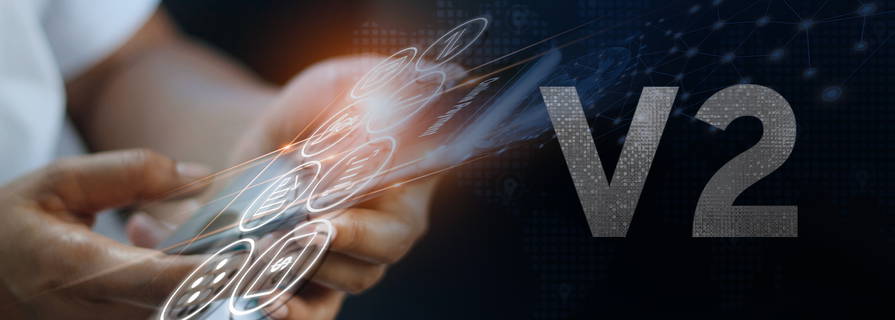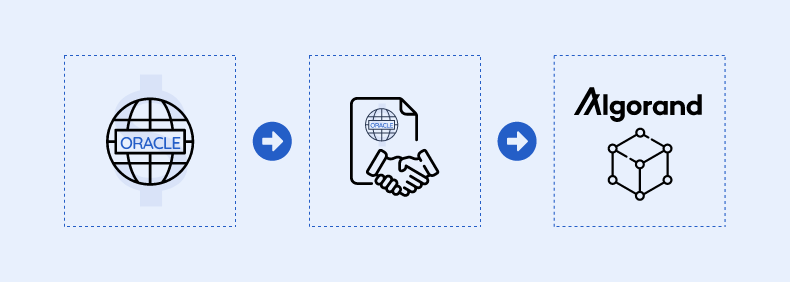news
Showing 239 posts related with news.
-
 Beginner · 15 minutes or less
Beginner · 15 minutes or lessAccess BetaNet Network using Purestake
Access BetaNet Network using PureStake
-
 Intermediate · 30 minutes
Intermediate · 30 minutesCompile and Run the Algorand Node Natively on Windows
Learn how to build the Algorand node and the whole set of devtools on Microsoft Windows and run them without the need of emulators, virtual machines and even WSL.
-

PyTeal — Writing Algorand Smart Contracts in Python
PyTeal is a python language binding for Algorand Smart Contracts (ASC) that abstracts away the complexities in writing smart contracts. PyTeal is provided as an open-source tool for the Algorand community. We invite you to try, use, and contribute to PyTeal if you are interested in developing and deploying ASC’s in Python.
-

Algorand Standard Assets
A conceptual overview of Algorand Standard Assets for developers.
-

Algorand Atomic Transfers
A conceptual overview of Algorand Atomic Transfers for developers.
-

Automating with the Mule Framework
Mule is a generalized automation framework for organizing the execution of defined automation in a declarative yaml format.
-

Getting Started on Algorand
In this article, we are going to cover some of the basics of where to start, what tutorials are available, options for setting up your development environment, and how you can be rewarded for developing applications on the Algorand blockchain.
-

Getting Started with Assets
Creating an asset is simply a type of transaction on Algorand. There is no contract code required. Here are five ways to get started developing with Algorand Standard Assets.
-

Smart Contract SDK Usage Updated to V2
The feature guide for accessing a TEAL program from an SDK is updated for V2. This guide contains SDK samples using TEAL programs with contract accounts or delegated signatures.
-

Leased Transactions: Securing Advanced Smart Contract Design
Certain smart contracts can benefit from defining a Lease parameter, which can provide security for exclusive transaction execution, mitigate fee variability, and enable long-running smart contracts. Learn when and how to use Leases in this article.
-

TEAL ALGO Oracle in Algorand Layer-1
In a blockchain, the ability to reference a price on-chain enables a seamless and trustless transaction environment, especially for automated transactions and smart contracts. Oracles are the entities in charge of broadcasting off-chain data such as market price to the blockchain, and serve as a source of truth that allows on-chain dApps to measure the value of assets referenced within a transaction. Rand Labs and Borderless Capital releases a Algorand Oracle that can be referenced in atomic transfers using TEAL stateful and stateless smart contracts.
-

Introducing Algorand’s Smart Contract Debugger
This article announces the release of the Teal Debugger.
-

Algorand Developer Office Hours
The Algorand Developer Relations Team holds weekly office hours to demo new features and answer you development questions.
-

Introducing Sandbox 2.0
Algorand Sandbox 2.0 is focused on developers and now deploys a containerized private network with an indexer by default. All APIs are exposed to localhost; sending and searching for transaction has never been easier.
-

Introducing Algorand Builder
Algorand Builder is a trustworthy framework for building Algorand DApps. We make building and shipping DApps easy.
-

Using Assets and Smart Contracts in Real Estate
Blockchain enables disruptive innovation within the real estate industry. This tutorial series explains the basics and creates an NFT to represent a property.
-

Introducing AlertHub to Monitor Your Algorand Accounts
AlertHub allows developers to enable monitoring and real-time alerting on Algorand accounts.
-

Making Development Easier with AlgoDEA IntelliJ Plugin
AlgoDEA IntelliJ plugin provides end to end development life-cycle on Algorand blockchain using IntelliJ IDE. Using this plugin, developers can create and test both stateless and stateful smart contracts directly from their IntelliJ IDE. Some of the other key features supported by this plugin are editor support for TEAL & PyTeal files, ASA management, Atomic Transfers, Test account management. The goal of this plugin is to increase developer productivity by simplifying various interactions with Algorand blockchain. Due to simple consistent development workflow in the IDE, developers can iterate faster during development stage.